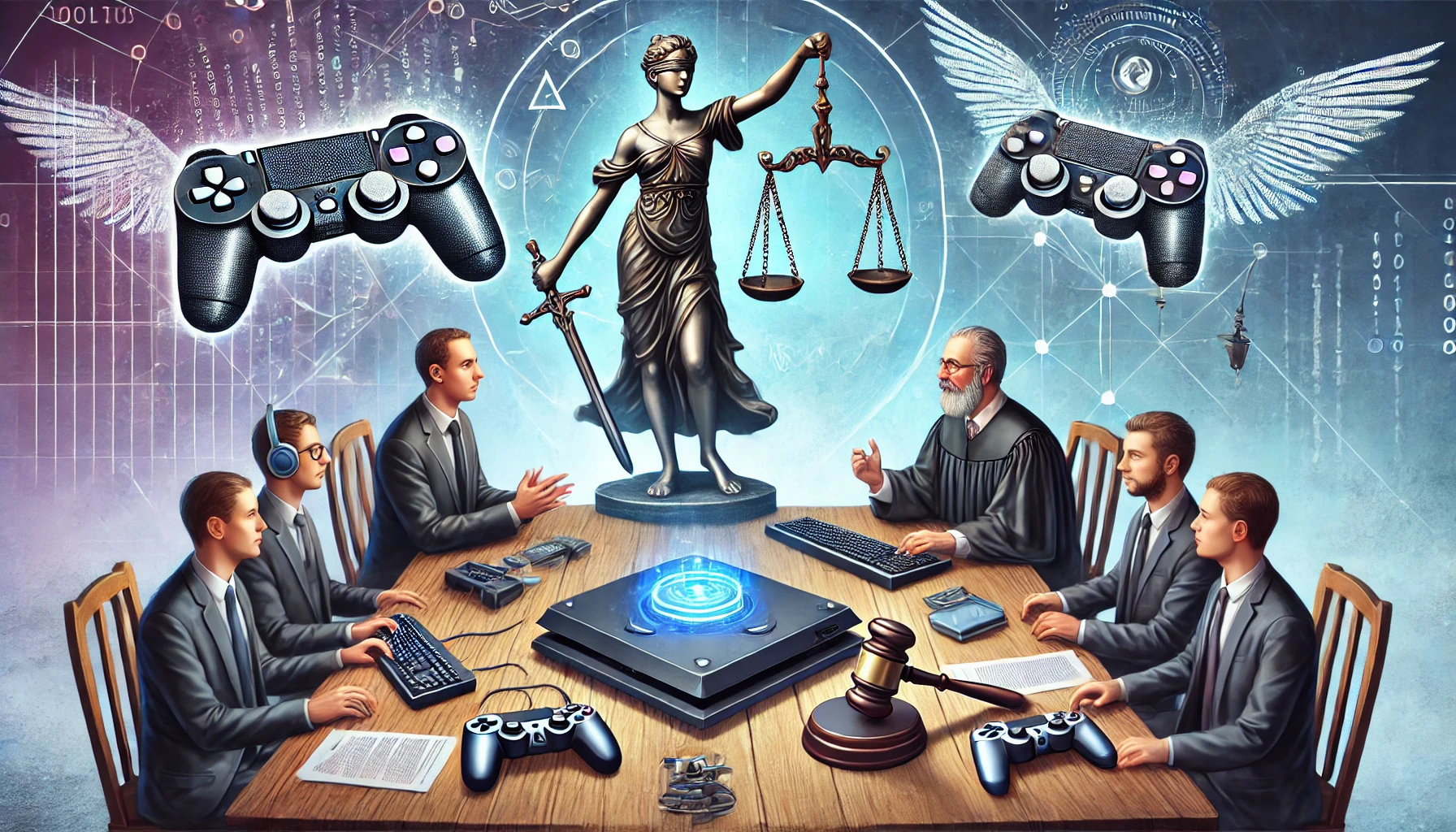The Steam class action lawsuit is a significant legal case that targets Valve Corporation, the creator of the popular Steam gaming platform. This lawsuit alleges that Valve engages in anti-competitive practices that harm developers, publishers, and consumers. It challenges the company’s commission rates, pricing rules, and its dominant position in the PC gaming market. This article explains the lawsuit in detail, why it matters, and its potential impact on the gaming industry.
Steam Class Action Lawsuit: Challenging Valve’s Dominance in PC Gaming
The Steam class action lawsuit is a pivotal legal case against Valve Corporation, the creator of Steam, the largest platform for PC game distribution. Filed by developers and publishers, the lawsuit accuses Valve of engaging in anti-competitive practices that harm smaller developers and limit competition in the gaming industry.
The case highlights three main issues: Valve’s 30% commission fee on all game sales, which developers argue reduces their earnings and raises game prices for consumers; the enforcement of a “Most Favored Nation” clause, which prevents developers from offering lower prices on other platforms, stifling competition; and Valve’s dominant market power, which leaves developers with little choice but to comply with its rules.
In November 2024, the lawsuit was certified as a class action, extending its reach to include all developers and publishers who have paid Valve’s commission fees since 2017. This development raises hopes for significant changes, including lower fees, more pricing freedom for developers, and potentially cheaper games for consumers. As of 2025, the case is ongoing, with its outcome likely to reshape the gaming industry and digital distribution platforms.
What is Steam?
Steam is the largest digital platform for PC games, hosting a vast library of games for purchase, download, and play. Developed by Valve Corporation, Steam is not only a marketplace for games but also a platform that offers:
- Tools for developers to sell and manage their games.
- Features for gamers to interact, including multiplayer options and social networking.
- A marketplace for buying and selling in-game items.
Since its launch in 2003, Steam has grown to dominate the PC gaming market, accounting for a significant portion of game sales worldwide. However, its dominant position is at the center of this lawsuit.
What Led to the Lawsuit?
In April 2021, Wolfire Games and other smaller developers filed a lawsuit against Valve, accusing it of unfair practices. The lawsuit claims that Valve uses its power in the market to suppress competition and force developers to comply with restrictive policies. Key complaints include:
High Commission Rates
Valve charges developers a 30% commission on every game sale through Steam. This fee is one of the highest in the industry, and many developers argue that it:
- Reduces their earnings significantly.
- Forces them to raise game prices to offset the cost, which ultimately affects consumers.
Restrictive Pricing Rules
Valve’s Most Favored Nation (MFN) clause requires developers to offer the same prices on Steam as they do on other platforms. This means:
- Developers cannot offer discounts or lower prices on competing platforms like Epic Games Store or their own websites.
- This discourages competition, as developers have no incentive to promote other platforms with better deals.
Abuse of Market Power
Valve is accused of using its dominant position in the market to enforce these rules. Developers claim that Steam is so popular that they cannot afford to ignore it, leaving them with little choice but to comply with Valve’s terms.
Key Developments in the Lawsuit
Expansion to a Class Action
In November 2024, the lawsuit was certified as a class action by a federal judge. This expanded the scope of the case to include:
- All developers and publishers who have paid Steam’s commission fees since January 28, 2017.
- A larger pool of plaintiffs, increasing the potential impact of the case.
Valve Removes Arbitration Clause
In September 2024, Valve made a notable change to its Steam Subscriber Agreement, removing the mandatory arbitration clause. Previously, this clause required users and developers to resolve disputes through arbitration, preventing them from filing class action lawsuits. The removal of this clause:
- Allowed this case to proceed in court.
- Opened the door for other legal actions against Valve.
Why is This Lawsuit Important?
This case has far-reaching implications for the gaming industry and beyond. Here’s why it matters:
For Developers
- Lower Fees: If the lawsuit succeeds, Valve may be forced to lower its 30% commission, allowing developers to retain more profits.
- More Freedom: Developers could gain the ability to set competitive prices on other platforms, encouraging innovation and diversity in the market.
- Support for New Platforms: Smaller or emerging platforms may thrive if developers are no longer tied to Steam’s pricing rules.
For Consumers
- Lower Prices: Reduced fees and increased competition could lead to lower game prices.
- More Choices: Gamers may see more platforms rise as alternatives to Steam, offering different features and pricing options.
For the Industry
- Market Reforms: A ruling against Valve could establish new standards for fair competition in digital marketplaces.
- Increased Scrutiny: Other platforms, such as the Epic Games Store and Microsoft Store, may face greater regulatory oversight to ensure they operate fairly.
Current Status of the Lawsuit
As of January 2025, the lawsuit is ongoing. Both Valve and the plaintiffs are presenting their arguments:
- Plaintiffs argue that Valve’s policies harm competition, inflate prices, and reduce options for developers and consumers.
- Valve defends its practices, claiming that its fees and rules are standard in the industry and necessary to maintain the platform.
While no verdict has been reached yet, the case is expected to have a significant impact regardless of the outcome.
Broader Context: Antitrust in Tech
This lawsuit is part of a larger trend of antitrust scrutiny in the tech industry. Major companies like Google, Apple, and Amazon have faced similar accusations of abusing their market power. These cases highlight growing concerns about how big tech companies operate and their influence on markets.
Governments and regulators around the world are increasingly focusing on ensuring fair competition in digital spaces. The Steam case is a critical example of this movement within the gaming industry.
Potential Outcomes
The lawsuit could result in several outcomes, including:
- Policy Changes: Valve may be forced to alter its pricing rules or reduce its commission fees.
- Compensation for Developers: If the lawsuit succeeds, affected developers could receive financial compensation.
- Market Shifts: A ruling against Valve could encourage the growth of other digital platforms, diversifying the gaming market.
Conclusion
The Steam class action lawsuit is a pivotal case with the potential to reshape the gaming industry. By challenging Valve’s practices, it raises essential questions about fairness, competition, and consumer rights in the digital age. While the outcome remains uncertain, the lawsuit highlights the importance of balancing market power to ensure a fair and competitive environment for everyone involved.
This case serves as a reminder that even the most successful platforms must operate within the boundaries of fair competition. Its resolution could set a precedent for how digital marketplaces operate, influencing not just gaming but the broader tech industry as well.
FAQs
What is the Steam class action lawsuit about?
It alleges Valve uses anti-competitive practices, like high fees and restrictive pricing, to dominate the PC gaming market.
Who is part of the class action lawsuit?
All developers and publishers who paid Valve’s commission fees since January 28, 2017, are included.
What changes has Valve made because of the lawsuit?
Valve removed the arbitration clause in its Steam Subscriber Agreement, allowing lawsuits to proceed in court.
How could this lawsuit affect gamers?
Gamers may benefit from lower game prices and more choices if competition increases.
When is the lawsuit expected to conclude?
There’s no clear timeline, but it’s ongoing as of 2025, with significant industry impact anticipated.
Article Recommendations
ATT Data Breach 2024 Lawsuit: How Millions of Customers Were Affected and What’s Next
Lifewave Lawsuit: How the Case is Reshaping Wellness Industry Standards
Arias Agencies Lawsuit: Financial Ramifications and Lessons for Businesses
Smoothstack Lawsuit: Examining the Allegations and Their Impact on Tech Employment Practices





